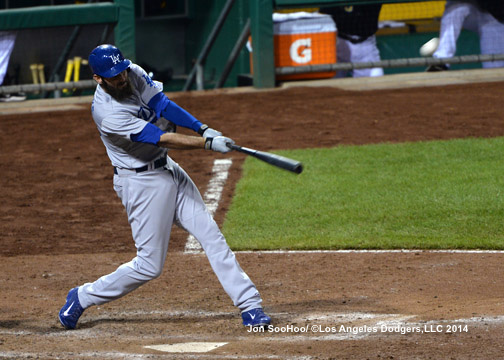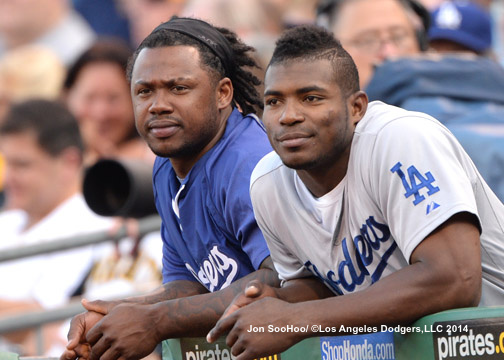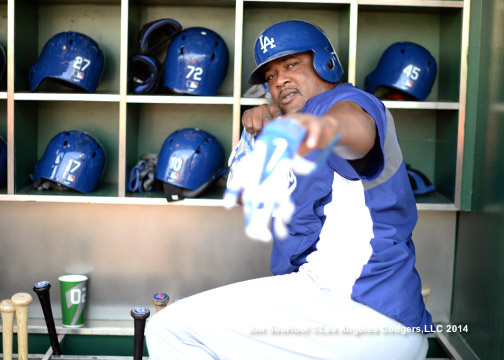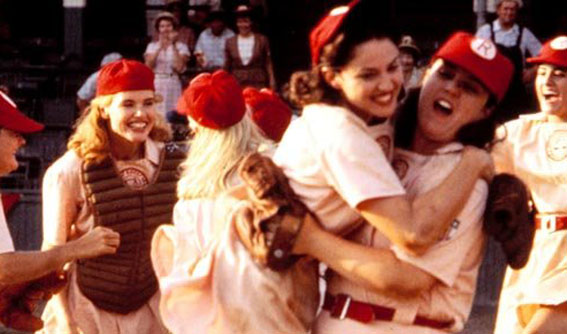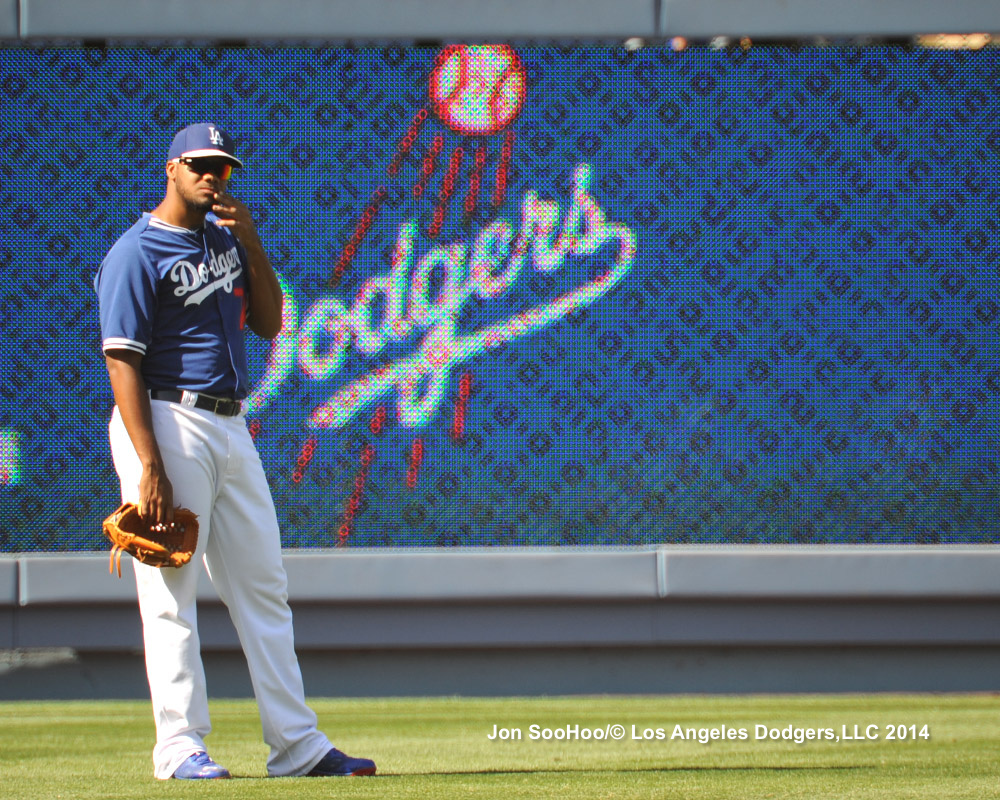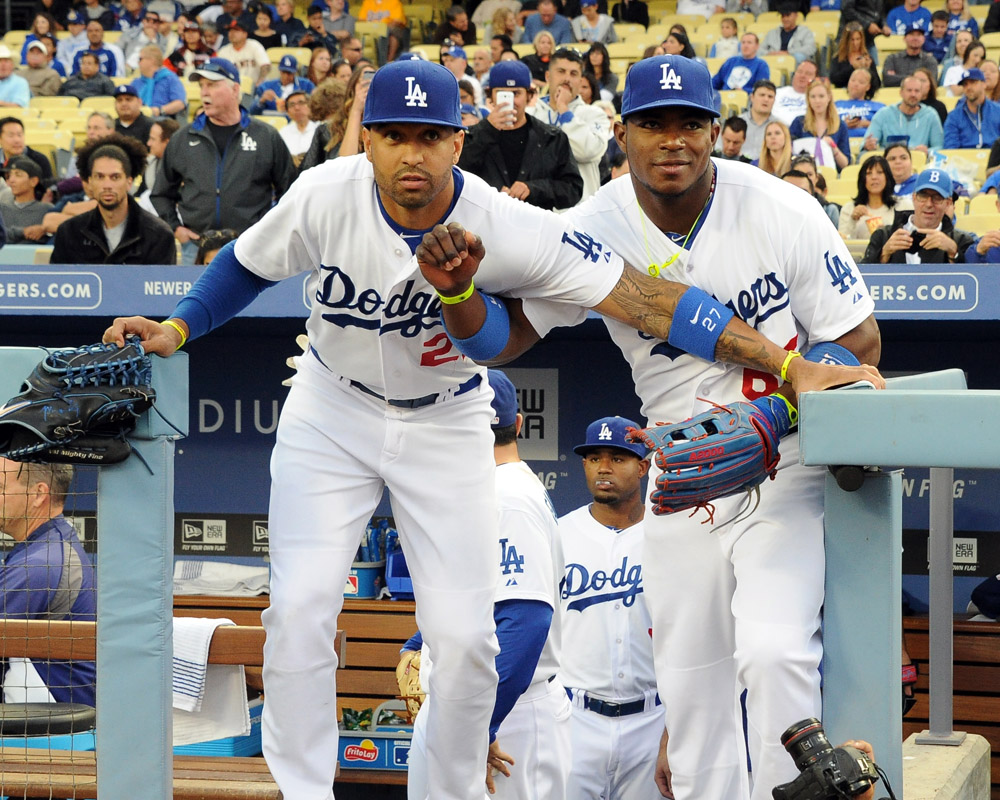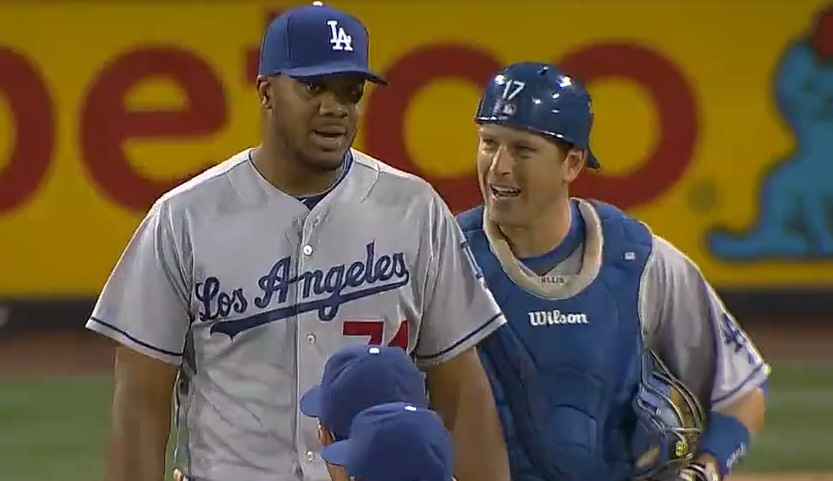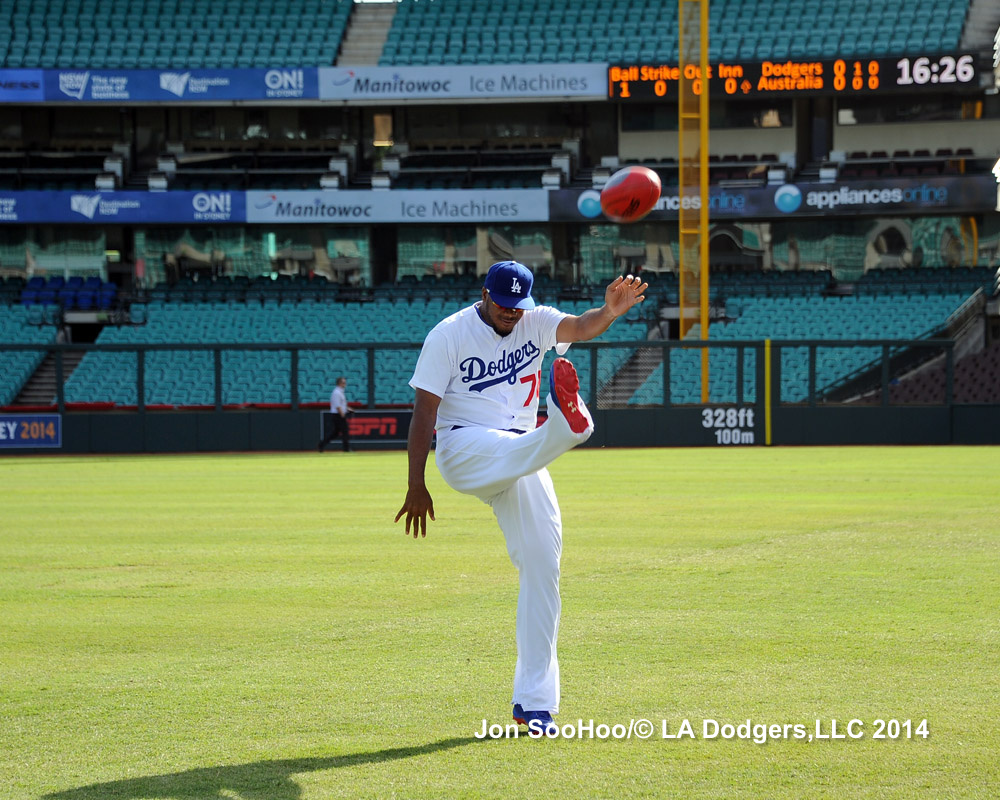[youtube http://www.youtube.com/watch?v=HC4bf67s5lQ&w=550&h=309]
By Jon Weisman
I’m guilty of a lot of preemptive worry about my job. It’s something that I’m actively trying to fight. It’s not that it doesn’t have its purpose — if I didn’t worry at all about making sure everything got done, deadlines would come and absolutely smack me in the face.
But there’s another level to it, a level where I find I struggle to relax until everything is done — except that everything is never done. There’s always something.
Plus, there’s the humbling frustration that however much I plan, some things still might not turn out the way I hoped. I do believe Vin Scully has a favorite line about this.
In the scattered moments — and I did have one Sunday, coincidentally around the time the Dodgers were losing 5-3 to Arizona — where I exhale and accept that although there’s more to do tomorrow, I’ve done about as much as I can or need to today, life can feel pretty good. That good feeling can be transient, just as the anxious feeling can. But there’s no denying that when you’re stressed, the good feeling is a feeling worth having.
* * *
So the Dodgers are 23-22 in 2014. Average, mediocre, disappointing. More recently, they’ve lost three of their past four, or seven of their past 11, or 10 of their past 16, opening the pathway from disappointing to anxiety-inducing. Many Dodger fans are nervous, many are angry. People want explanations. They want remedies. They want heads to roll.
One explanation is that this is simply not a consistently sharp fielding team. It never shaped up to be a consistently sharp fielding team during Spring Training, and it might never become one. It will win on the nights when the fielding is sharp (being inconsistent means you execute some of the time, not none of the time), or when the team hits and pitches well enough to overcome any fielding follies. Twenty-two times out of 25, this hasn’t happened.
That, to me, is by far the most logical explanation, and really, there’s not much more that needs to be said.
But inevitably — so inevitably that I’m always surprised when some act as if this were unique to a particular team like the 2014 Dodgers — when a team is average, mediocre or disappointing, fans and the media will comment that the team is playing with no energy or emotion. I’ve lost count of how many times I’ve heard or read this in May.
It might or might not be true, but it’s fascinating (not in a good way) the cocksureness that people make this comment just from observing the action on the field, which is the only evidence most people get. Every once in a while, you’ll see a ballplayer dog it running to first on a routine grounder or backing up a potential bad throw. But really, on almost every single moment at a baseball game, there’s no way you can see that a player isn’t doing everything he is capable of.
Not succeeding is not the same as not trying. Moreover, sometimes you can succeed without your maximum effort. Don’t tell me you never have. Yet you’ll never see anyone say “they’re playing with no heart” after a win. There’s this assumption of a clean, moral universe in sports and in baseball and with the Dodgers. If you’re winning, you did everything you could. If you’re losing, it’s a character flaw.
Can anyone, by any significant measure, demonstrate that the Dodgers who won 7-0 on Friday played the game with more energy than the Dodgers who lost 18-7 on Saturday? Surely, you’re not going to be the one to question Clayton Kershaw’s mental and emotional commitment to the game. Was it that the Dodgers played with no heart when they fell behind 9-2, then turned on the heart when they came back to 9-7 with the tying run at the plate, then — for no reason other than to vex us — picked that particular moment to become Grinches and give up nine more runs?
Or was it just a bad night, perhaps one to learn from, but not one of any philosophical significance?
If Matt Kemp’s bases-loaded line-drive in the eighth inning on Sunday finds an opening, everyone would be celebrating the character of this team instead of questioning it. Next time, I suppose, Kemp will have to equip his bat with a literal moral compass.
What’s funny is in one breath you’ll see people comment about the importance of a team’s heart, and in the next, you’ll hear wonderment that an expensive player payroll hasn’t guaranteed success and happiness. As if anyone ever thought money guaranteed success and happiness. Money is a tool, a very good tool, but it’s not the only tool.
* * *
So, back to preemptive worry. That’s what this is about.
You figure that if the Dodgers win 100 out of 162 games during the 2014 regular season, they would be guaranteed a playoff spot, if not the best record in the National League. Everyone would be happy. But for most fans, those 100 wins can’t come soon enough. Why not just get them done now?
Well, while no one in their right mind would believe it possible for the Dodgers to win their first 100 games, there is this temptation to feel that when they’re not winning, I would say, at least 60 percent of the time, that something is deeply wrong.
One of my best friends in high school and college was, among other things, probably the smartest guy I ever met and definitely the most efficient student I ever knew. It wasn’t until we were roommates my senior year in college that I really understood how he did it. He would come back in the afternoon from his classes, go into his room and learn … everything. He was like Jim Carrey at the end of “The Truman Show,” actually reaching the end of a horizon previously assumed to be infinitely distant. He had both the ability and will to simply understand every single thing he needed to know, so that when it came time for a test or any other project, he could do absolutely everything he needed to do.
Then he would eat dinner and go out and get smashed.
This, essentially, is the baseball fan’s dream. Win everything, then party. Never lose. Meet adversity on purely procedural terms, like doing the dishes, rather than as a reality that will defeat you from time to time, sometimes unbearably often.
This, however, is not how it works for 99 percent of us, the Dodgers included, however much we might wish it otherwise. You’re never done churning. Sometimes, success comes late. In the best stories, it almost always does.
* * *
Let’s allow for the possibility — and again, I don’t really believe this is what’s happening — but let’s allow for the possibility that these current Dodgers really aren’t doing their best, that they’re consciously pacing or saving themselves, or that they’re unconsciously unable to produce at an elite level except in response to crisis. They are the fight-or-flight Dodgers.
They will ultimately be judged on results, but if they succeed, then maybe they will have had it right all along. Because I wouldn’t wish the destructive emotion of anxiety on anyone. And there’s a case to be made that the less mental energy the Dodgers expend in May, the more they’ll have in October.
Procrastinators are never role models, because of the deadline bogeyman. There’s always the sense of flirting with disaster, of asking for trouble and having nowhere to turn when it arrives. That doesn’t change the fact that sometimes, people who leave the hard work for the last minute do succeed (and keep in mind, mid-May is hardly the last minute, and a five-game deficit is hardly an enormous hole). We might resent the success of the procrastinator, even as we grudgingly have to respect it.
We can worry. Oh yes, we can worry. Or, we can understand that every season has its own ebb and flow, trust in the Dodgers to be the agents of their own change and convert our worry into hope.
Perhaps it’s my inability to apply this level of zen to my own work that makes me so believe in it it as a Dodger fan. Those who can’t do, talk about others doing. Each loss aggravates me, but all hail the next game.
I can’t really ask anyone to change what they feel. I can only tell you what I feel, which is that when the team I’m rooting for is losing, the best medicine isn’t to question their heart or wonder why they don’t play to their potential every day. It’s to sit back, put on “Rosalita” and look forward to tomorrow.


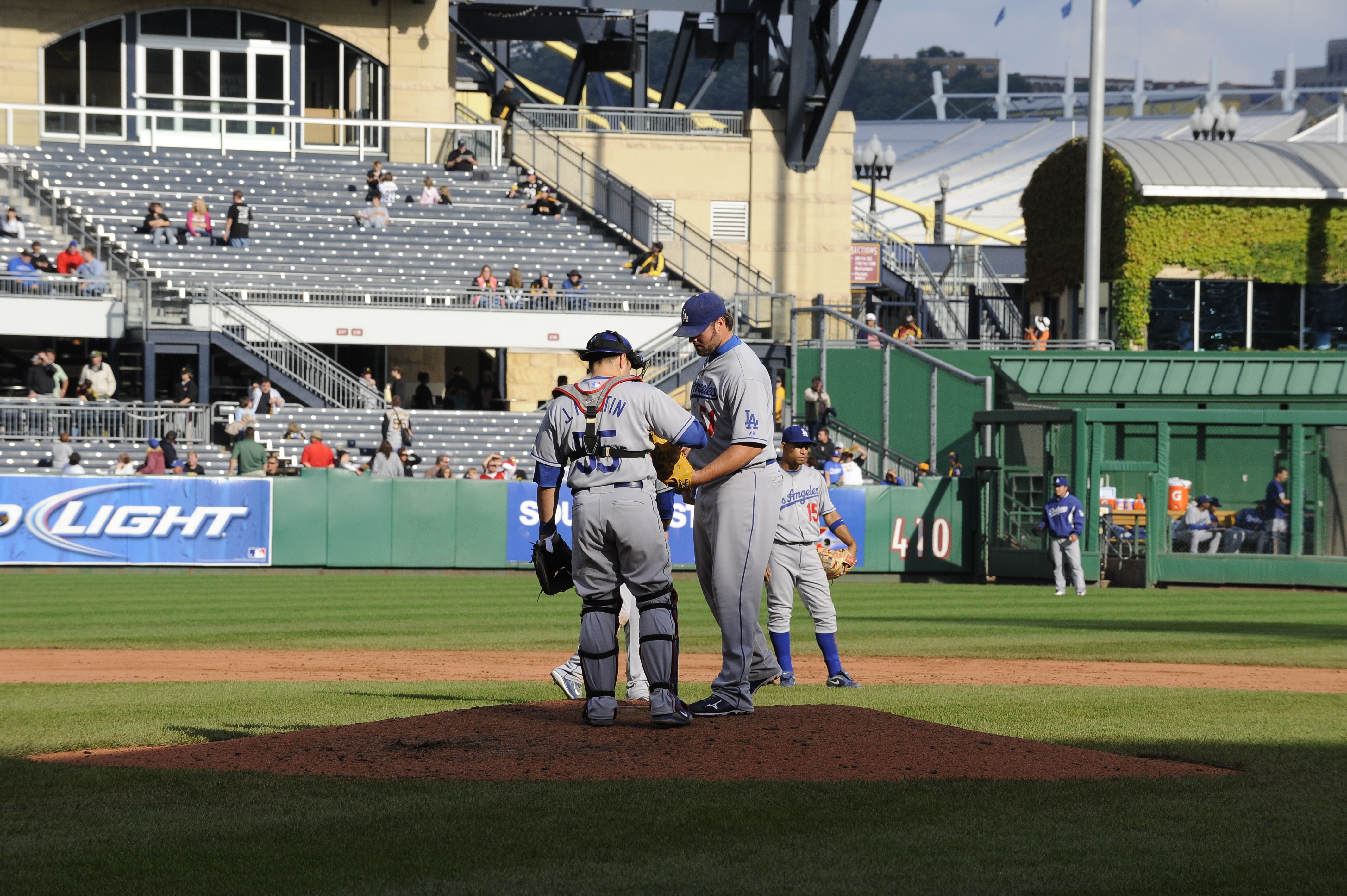

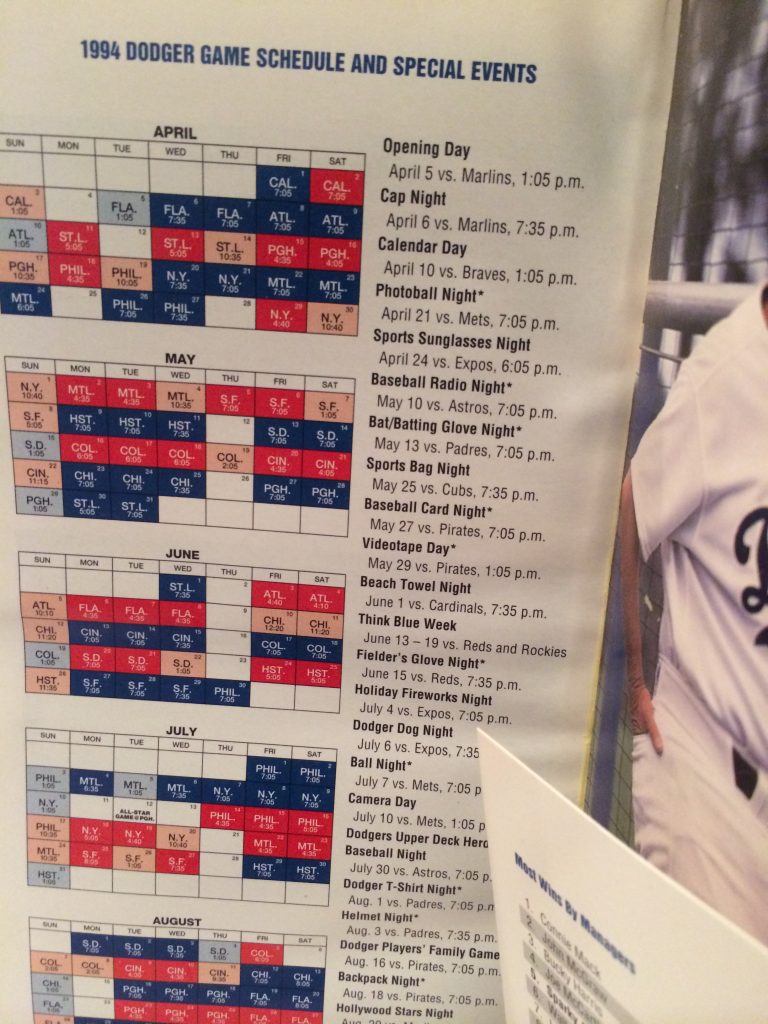
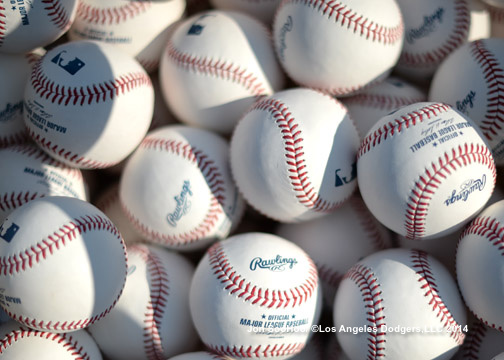
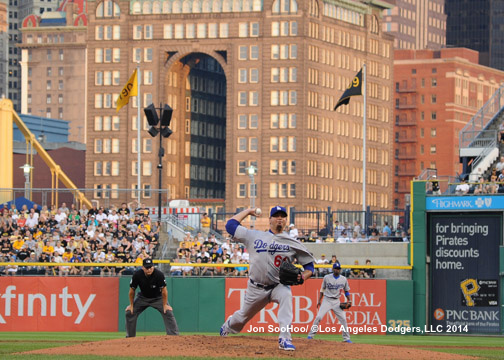 Josh Beckett had a rough return from the disabled list
Josh Beckett had a rough return from the disabled list 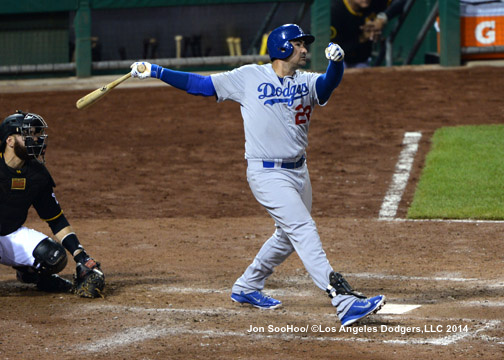 Adrian Gonzalez hit his 250th career homer Tuesday, as Lee Sinins notes at
Adrian Gonzalez hit his 250th career homer Tuesday, as Lee Sinins notes at 